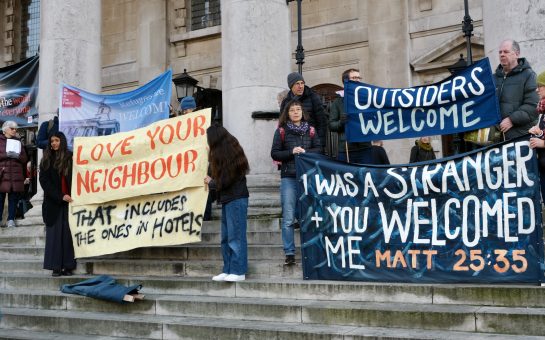Kat Hind
June 30 2020, 12.25
Follow @SW_Londoner
Demand for food banks in the UK has increased by 89% during the Coronavirus lockdown.
The Trussell Trust published figures in June showing that 89% more people needed emergency food parcels and 107% more children needed food bank support in April 2020 compared to the same period last year.
These numbers cover 82% of the Trussell Trust network, a national charity that supports more than 1,200 food banks.
It also revealed in its year-end figures for 2019 that the overall need for food banks in the UK has continued to rise.
In the last financial year its food banks distributed 1.6 million three-day emergency food supplies, a 19% increase on 2018.
These figures also showed that Scotland, the North West and London were the areas where people are most likely to use food bank assistance.
Across London the pandemic has affected food poverty and insecurity differently.
Sutton
Sutton food bank’s demand increased by 113% in the first 12 weeks of lockdown compared to the same period in 2019, serving 891 adults and children more than 8,000 meals.
Sutton Community Works, which runs the food bank, handed out 13,654kg of food to the local community from 1 January to 15 June this year.
Director Mark Tomlinson said: “Our vision has always been to be more than food, we want to help people with the underlying issues.”
Mr Tomlinson noted that despite the huge increase in demand, food hadn’t been an issue for them at all thanks to public donations.
The food bank changed its services to cope with the new social distancing measures and now provides pre-packed boxes to people for seven days instead of three.
Mr Tomlinson added that they received help from furloughed British gas workers who helped every Wednesday for two months delivering food to their centres.
Greenwich
Greenwich food bank puts its comparatively low increase in demand of just over 40% down to a community effort and council engagement with food insecurity.
Greenwich food bank CEO Alan Robinson praised the Council’s Community Hub which coordinates volunteers in the area to help the most vulnerable in the community.
Mr Robinson said: “For years we’ve realised there are people who come to the food bank whose lives could be made more sustainable if there was some investment made in them and their families.
“We’re going to work with others in the poverty sector to actually remove the need for food banks and get the responsibility back to government and community, to actually care and look after its people.”
Local charity Greenwich Co-operative Development Agency (GCDA) supported the community with deliveries of food boxes and food surplus to residents in need.
GCDA CEO Claire Pritchard reported that they had distributed 3,500 food boxes per week during lockdown and a total of 20 tonnes of surplus food.
Ms Pritchard said: “Every disaster movie says people turn on each other, and although there were some stories, actually the opposite happened. Everyone supported each other in just the most amazing way.”
On the benefits for volunteers Ms Pritchard added: “There were some people who were socially isolated because they were furloughed, so being able to volunteer has protected their mental health and their physical health, and given them something to be really proud of.”
Charlton resident Nick Buckland contributed to this effort by setting up a donation page for Greenwich food bank while self-isolating.
The campaign raised £10,000 in its first 72 hours.
Mr Buckland said that he was shocked by the power of social media while promoting the campaign in his self-isolation.
He added: “If you have the desire and the urge to help act on it, because you won’t regret it.
“The most profound thing we can do in this life is to help other people and especially help those people in need.”




